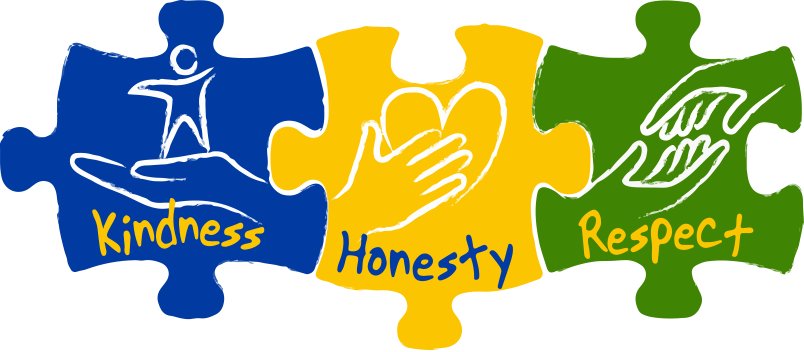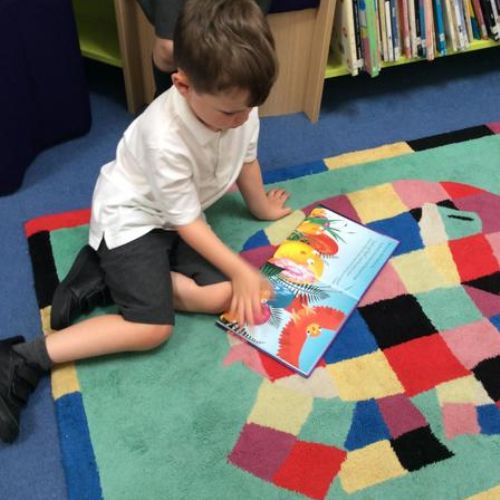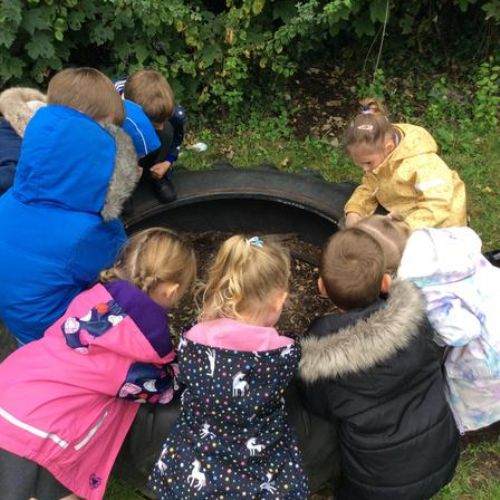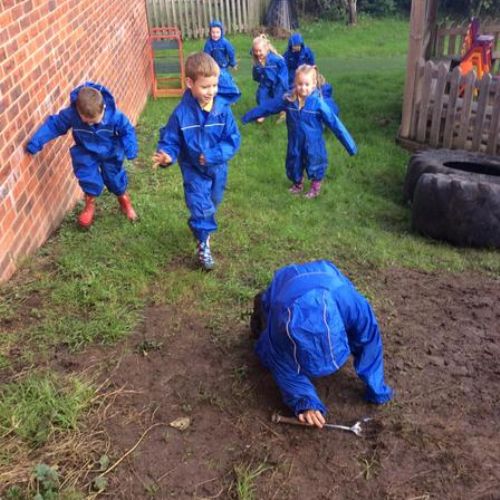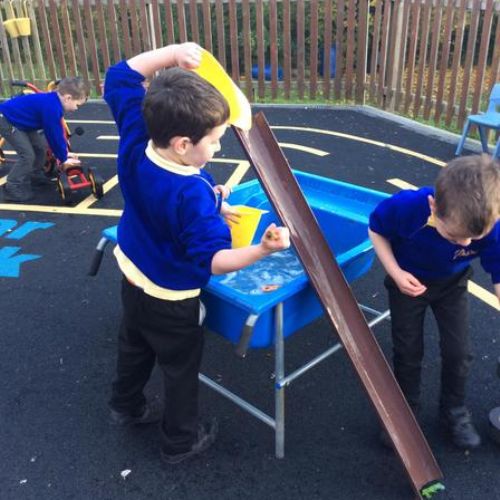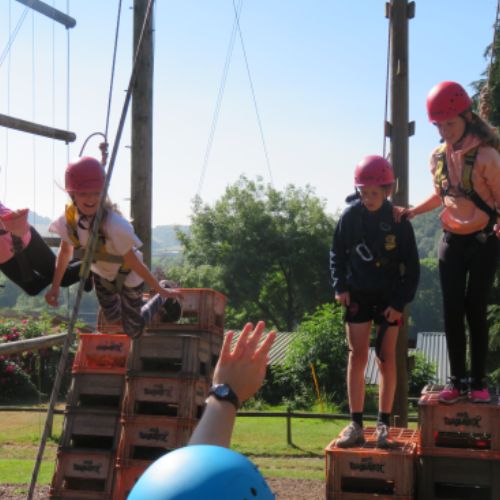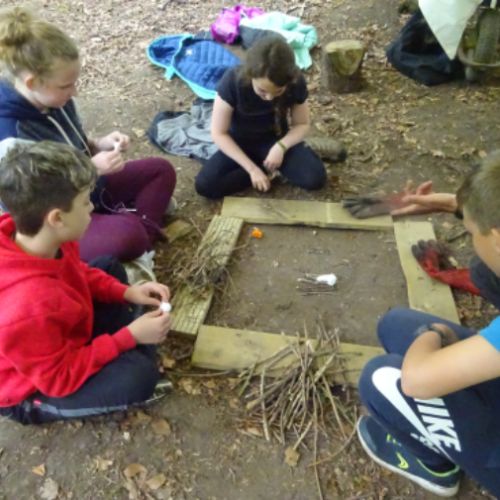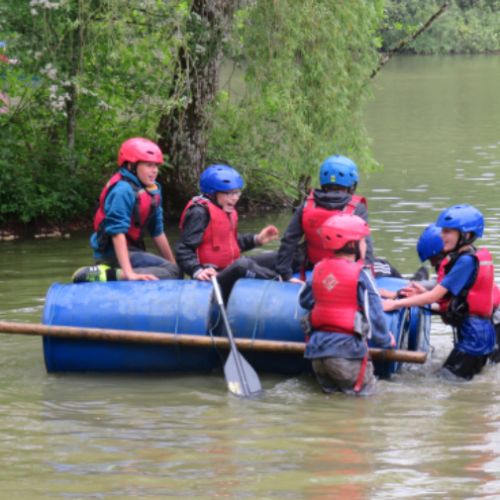Curriculum
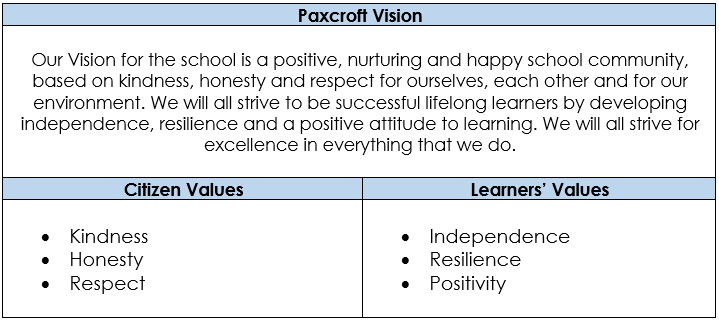
Our vision for the curriculum
As our children journey through Paxcroft, they will develop the knowledge, skills and attributes needed to be independent, positive and resilient learners, with their passion for learning ignited and their academic, physical and mental wellbeing nurtured. Every child will have the chance to shine and will leave our school prepared for a future as a confident citizen able to make a valued contribution to society through their kindness, honesty and respect for themselves and others.
We believe that our curriculum is broad and balanced and ambitious for all children. It is exciting, relevant and meaningful to our children, placing development of the whole child at its centre.
You can find out more about our curriculum by contacting the school office: admin@paxcroft.wilts.sch.uk
At Paxcroft, we believe that our curriculum should be thought of in its widest sense: it is the entire planned learning experience that a child will experience on their journey through our school, from formal learning opportunities to meaningful experiences that shape academic, physical and mental wellbeing. It is coherently planned and well sequenced to allow learning of knowledge and skills to be built upon and confidence developed. The development and awareness of the attributes needed to become well-rounded citizens who are prepared for the challenges of the 21st Century permeates our curriculum at all levels.
Underpinning our curriculum design are three key themes. These shape our curriculum, reflect our vision and values, and respond to the needs of the school community.
1. Passion for learning
Our children will have a thirst for learning, both in school and beyond our gates. They will be curious learners, well-educated citizens and they will gain the knowledge, skills, understanding and vocabulary to give them the confidence and empower them to contribute positively to society.
2. Ambition & aspiration
Our children will have ambition and high aspirations for their futures. Each child’s capacity to see possibilities in the world will be developed – their horizons broadened. Children will know that their aspirations will be reached through hard work and determination.
3. Community
Our children will understand their local community and feel proud of where they live. Our curriculum will help them to see their place in increasingly widening circles, from citizens of our school through to being conscientious, aware global citizens who can make a positive impact and who are tolerant and compassionate towards others. They will understand that the world they live in needs looking after.
How do we achieve this?
Our bespoke curriculum is underpinned by current pedagogical research and has been designed with the following in mind, based around our vision for every child:
- How children learn and remember: Progress means knowing more and remembering more. Our curriculum is designed to facilitate lifelong learning of knowledge and skills.
- Reading is placed front and centre of our curriculum structure in recognition of its importance in opening doors for children in their future. Alongside this, opportunities to develop language and oracy skills are embedded throughout.
- Core and foundation subjects have been thoughtfully mapped out to ensure knowledge, skills, understanding and concepts are built on over time.
- Memorable, experiential opportunities are built in to the curriculum to support learning.
- Research based on Cognitive Load theory has been used to inform planning for long term memory acquisition.
- What children need to succeed in life: We want our children to have the ‘cultural capital’ they need to make aspirational choices and experience success beyond their time at Paxcroft.
- The statutory elements of the Early Years Foundation Stage Curriculum and Primary National Curriculum form have been taken into account for all core and foundation subjects and these form the main areas of content and expectations of our curriculum.
- Our curriculum also incorporates experiences and opportunities that we believe best meet the needs of our children in our community in the modern world. These include strands on local history, the challenges facing our planet and developing awareness and tolerance of a wide range of cultures.
- The development of the attributes needed for young people to become valued and valuable members of society is planned into the whole curriculum.
- Physical and mental wellbeing is prioritised.
- Meaningful experiences ensure that every child has the opportunity to access a range of horizon-broadening experiences.
How will our children benefit?
From their different starting points, all children will make good progress academically, emotionally, socially and physically. Knowledge, understanding and skills will be secured and embedded so that children attain highly and are fully prepared for the next stage of their lives and beyond.
Our children will be kind. They will be respectful towards others and have the integrity to be honest and to make a positive contribution to the world around them.
They will have strong communication skills, both written and oral, and will listen respectfully to the views of others.
They will have confidence in their abilities and be emotionally resilient, recognising the power of perseverance.
Our Curriculum and the Equalities Act 2010 and SEND Act 2014
In the approach to the design and delivery of our curriculum, we take our responsibilities to comply with the Equalities Act 2010 and the Special Educational Needs and Disability Regulations 2014 very seriously. We have high expectations for all pupils and are committed to equality for all.
In particular to ensure our students are protected from discrimination, harassment and victimisation on the grounds of specific characteristics (referred to as protected characteristics).
For schools, this means that it is unlawful to discriminate against 'protected characteristics' identified as gender, race, age, disability, religion or belief, gender reassignment, sexual orientation, pregnancy or maternity.
For further details on our Equalities objectives please view our Equalities Policy and objectives.
Learning in the Early Years
Many children attend a pre-school before coming to school, which is known as Foundation Stage One (FS1). Children who have their 4th birthday before 31st August begin school in Foundation Stage Two (FS2) during the following September, which we call Reception Year. Children and parents are invited to visit the school for three sessions during the previous summer term to meet their teachers, visit the classrooms and take part in activities. Early Years’ teachers have regular contact with the feeder Nurseries.
We work towards the Foundation Stage Goals for the under-fives. Opportunities for personal, social and physical development are essential as children develop at different rates physically, socially and intellectually. They are encouraged in their creative development through a wide range of art and craft activities. Music, singing, games and dance are also an important part of the curriculum. Reception pupils gain knowledge and understanding of the world through observation of the environment, undertaking simple scientific tests, cooking, role-play and visits. They are encouraged in language to listen carefully, talk clearly, ask and answer questions and follow directions.
Synthetic Phonics is explicitly taught in school using the Sounds-Write Programme - this ensures children quickly build up their knowledge for the sounds that make up English and, alongside this, the letters that represent the sounds. We aim to foster a love of books so that reading becomes a pleasurable experience. Children develop a mathematical vocabulary e.g. big, bigger, biggest, long, short, tall etc. and count, sort and group objects, add and subtract numbers and recognise simple shapes.
The first year in school provides a firm basis for the National Curriculum and gives children a secure and happy beginning to their school years. Parents are encouraged to attend a range of Foundation Stage Workshops during their child’s first year at school.
Learning In Key Stages 1 and 2
- English
- Phonics
- Maths
- Science
- History
- Geography
- Religious Education
- Art and Design
- Design Technology
- Computing
- Modern Foreign Languages
- Music
- PE
- Personal, Social, Health and Economics (PSHE) Education and Relationships and Sex Education (RSE)
Curriculum Cycle
Our school teaches mixed-age classes from Y1 to 6 and, as such, we have developed a two-year rolling curriculum cycle to ensure coverage of key topics, both those from the National Curriculum and those we feel are important to our specific locality.
Our topics are primarily led by History or Geography focuses. Where appropriate, other foundation units with meaningful connections to this central topic are linked in. Where there are no appropriate links, other foundation units are taught as a separate block or strand to the main topic.
The sequencing of our topics has been carefully considered so that themes and subjects are revisited in different phases, building on past knowledge to give children a deeper understanding of key areas.
The content of the curriculum in each subject for each phase is recorded on our Curriculum Map. This is available in the documents below.
Please feel free to explore the overview of how our topics are set up below. If you would like further information about the makeup of our curriculum, please contact the school office.

The 1989 Education Act requires that all state maintained schools follow the National Curriculum, consisting of core subjects: English, Mathematics and Science and foundation subjects: Computing (ICT), History, Geography, Physical Education including dance, swimming, outdoor education and games (PE), Art, Design Technology (DT), Music and Personal, Social and Health Education (PSHE), which includes the teaching of Sex Education. Religious Education (RE) is a statutory requirement as is a daily act of worship. Also, at Paxcroft, all of our Key Stage 2 pupils now have the experience of learning French or German, as two of our teachers have previous experience as language teachers.
School Visits and Residential Visits
We believe that first hand experiences are an essential enrichment to the children’s educational experience and that they enhance the learning environment. With this aim, teachers arrange field visits to places that will bring alive the classroom work in which the children are involved. However, because of the constraints on the school budget, it is not possible to pay for the cost of such visits from school funds. Therefore we ask for voluntary contributions from parents to cover the cost of the outings. Unfortunately, unless parents are willing to make such contributions, the visit may not take place. No child will be excluded from a school visit if his or her parents have felt unable to make a contribution.
Residential visits have long been part of the Paxcroft tradition. The National Curriculum has emphasised a need for the study of areas outside the locality of the school, in both the history and geography programmes of study. In addition, the social development fostered by such activities is of great benefit to pupils. These journeys are educational visits but are optional extras so are subject to the governors’ charging policy. The trips depend on the willingness of parents to provide the necessary funds. The Headteacher is willing to discuss, in confidence, financial matters relating to the cost of such visits.
